Home
Tens of thousands took part in a demonstration in London against austerity, and thousands more in other cities. Russell Brand was heckled for being too right-wing: ‘Fuck off back to Miliband,’ protestors in Parliament Square cried. David Cameron, the Prime Minister, explaining his thinking on further benefit cuts: ‘There is what I would call a merry-go-round: people working on the minimum wage having that money taxed by the government and then the government giving them that money back — and more — in welfare.’ The government sold more shares in the Lloyds Banking Group, bringing its ownership to less than 17 per cent. The village bank that appeared in an advertisement by NatWest promising to ‘provide banking services forever if we’re the last bank in town’ is closing down.
Karenzi Karake, the head of Rwanda’s intelligence service, was arrested in London on a European warrant issued by a Spanish judge alleging war crimes carried out after the genocide in 1994. Michael Gove, the Lord Chancellor, said that apart from the ‘wealthy, international class’, everyone else ‘has to put up with a creaking, outdated system to see justice done’. An independent inquiry into the high proportion of children in care who end up in court was commissioned by the Prison Reform Trust, with Lord Laming at its head. The bookmakers Ladbrokes and Coral discussed a merger. The Queen may move out of Buckingham Palace, which has not been redecorated since 1952, to allow maintenance work.
Amber Rudd, the Energy Secretary, said that, following the removal of subsidies for onshore wind farms, 250 proposed projects were now unlikely to be built. Voters in the constituency of Richmond Park approved a plan by their MP Zac Goldsmith to stand for election as Mayor of London. Sir Chris Woodhead, the Chief Inspector of Schools in England, 1994–2000, died aged 68. After a woman had been found guilty of causing the death of a jogger by dangerous driving, a judge in Canterbury rejected a plea not to impose a jail sentence on her on the grounds that she weighed 30 stone.
Abroad
Leaders of eurozone countries cobbled together an agreement to save Greece from falling out of the currency. Jean-Claude Juncker, the President of the European Commission, proceeded on the basis of Greece resembling ‘a cow slipping on ice’ that needed to be pushed to firm ground. The European Central Bank allowed the Bank of Greece to lend more money to the country’s banks in order to keep them open. Greece, migration and terrorism came under discussion at the European Council meeting in Brussels, as Mr Cameron tried to interest the EU in reforms to benefit Britain. The Queen and the Duke of Edinburgh visited Germany. President François Hollande said that France would ‘not tolerate’ acts that threatened its security, after Wikileaks claimed that the United States spied on him and his two predecessors. The port of Calais and the Channel Tunnel closed when strikers blocked roads with burning tyres while hundreds of migrants tried to stow away in lorries during the chaos.
Dylann Roof, aged 21, was charged with shooting dead nine people in the Emanuel African Methodist Episcopal Church in Charleston, South Carolina. The United States is to deploy tanks and artillery in Bulgaria, Estonia, Latvia, Lithuania, Poland and Romania in response to Nato anxieties about Russia’s behaviour in Ukraine. Belgium seized Russian state assets in pursuance of a judgment by an international arbitration court in The Hague in favour of former shareholders in Yukos, the oil company taken over by the Russian state. Minibus drivers in Omsk protested against fare reductions by observing traffic regulations.
Kurdish forces captured the town of Ain Issa, 30 miles north of Raqqa in Syria, from the Islamic State. At least 20 Druze civilians were shot dead by the Nusra Front, which is affiliated to al-Qaeda, in the Idlib province of Syria. The United States said that an air strike on Mosul in Iraq, which is controlled by the Islamic State, killed Ali Awni al-Harzi, whom it blamed for the attack on an American diplomatic compound in Libya in 2012. In the first week of Ramadan, more than 800 died in Karachi when temperatures reached 113˚F. Two cases of Ebola were found in Freetown, Sierra Leone, weeks after the city was thought to be free of the disease. Muhammadu Buhari, the new President of Nigeria, said that the country’s treasury was ‘virtually empty’. A 35-year-old woman in Australia had to be cut out of her jeans after their tightness made her legs swell. CSH
Got something to add? Join the discussion and comment below.
Get 10 issues for just $10
Subscribe to The Spectator Australia today for the next 10 magazine issues, plus full online access, for just $10.
You might disagree with half of it, but you’ll enjoy reading all of it. Try your first month for free, then just $2 a week for the remainder of your first year.

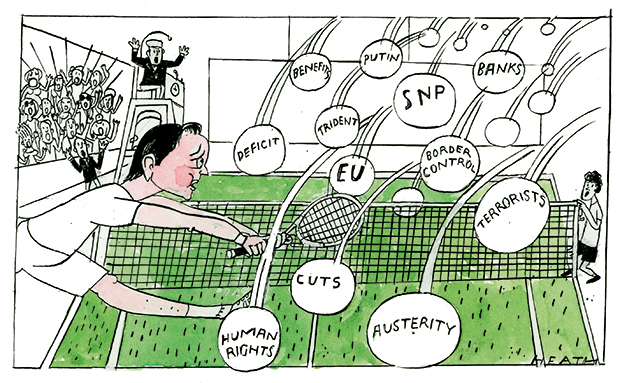
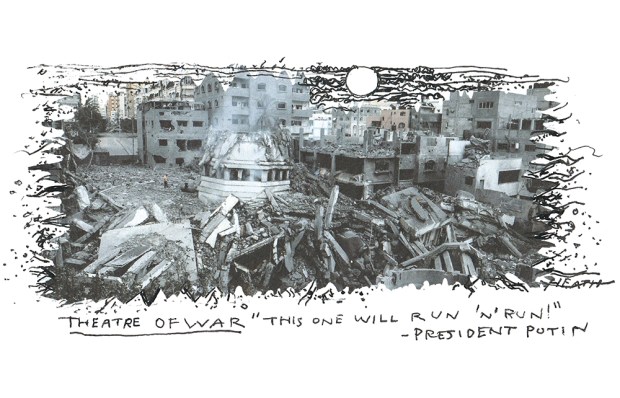

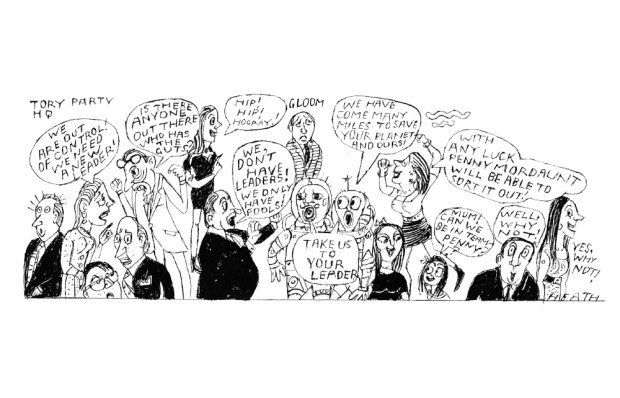

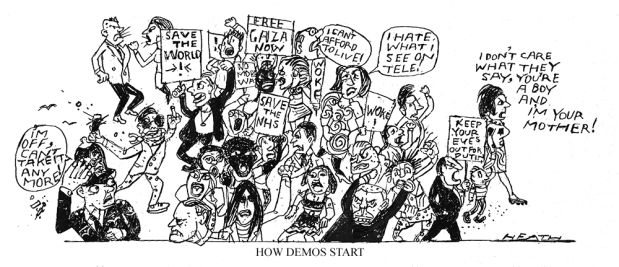
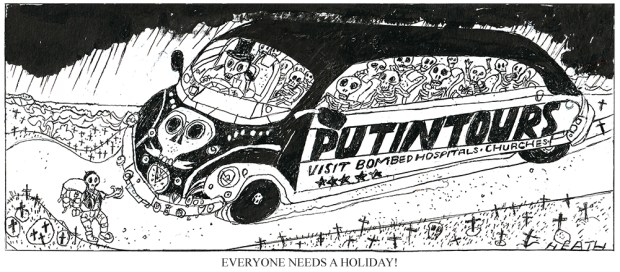






Comments
Don't miss out
Join the conversation with other Spectator Australia readers. Subscribe to leave a comment.
SUBSCRIBEAlready a subscriber? Log in